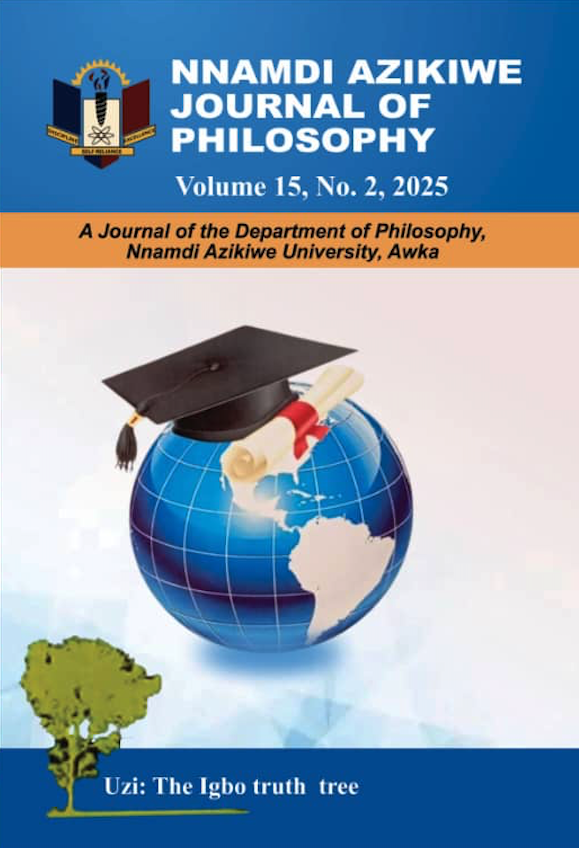ABSOLUTENESS OF TRUTH: A CRITICAL SURVEY OF A SELECTED PHILOSOPHICAL POSITIONS
Abstract
The question of truth in both philosophy and religion has been an age-long debate, dating back to the classical ancient Greek philosophers like Socrates in his dialogical interface with his students on what truth really is. This paper is a critical attempt to examine the concept of the absolutism of truth, which holds that there is one absolute and universal truth. The Problem this paper seeks to address is the tension between the belief in an absolute truth and the diverse, context-specific interpretations of truth in different cultures and philosophical traditions. To explore this issue, the paper attempts to inquire into the problems posed by the absolutism of truth: What is considered truth? An attempt to answer this question immediately plunges us into grappling with two philosophical positions: psychologism and realism. The paper employs the research methods of philosophical analysis and critical examination to investigate the different philosophical postulations on truth, including its inflexibility and its inability to account for various cultural and contextual understandings of truth. Furthermore, the paper considers the relevance of the absolute nature of truth in philosophy, arguing that while it may be useful in certain contexts, it is not a universally applicable concept. The paper concludes by calling for a more nuanced and context-specific understanding of truth that takes into account the diversity of human experience.


